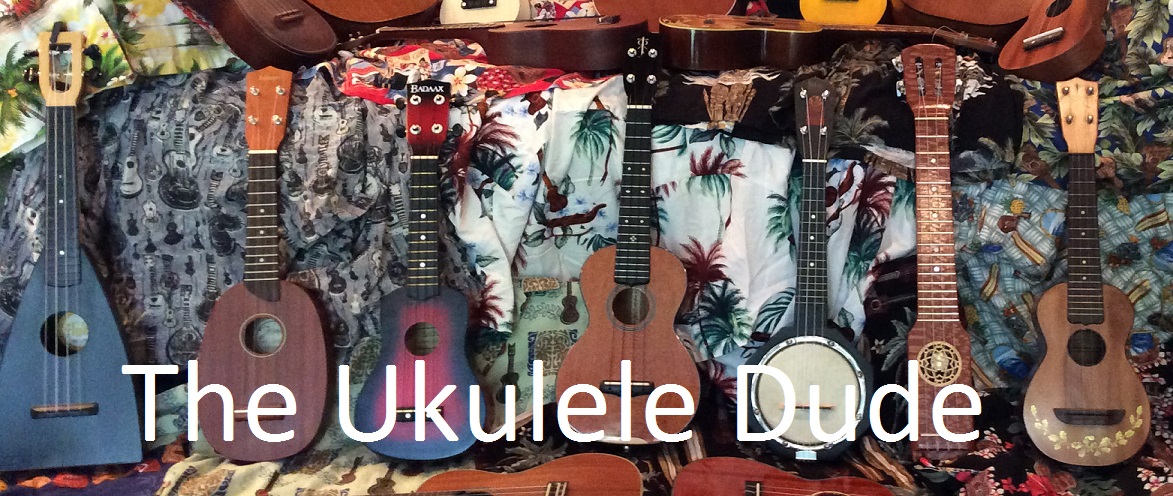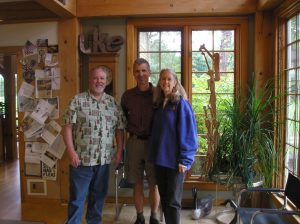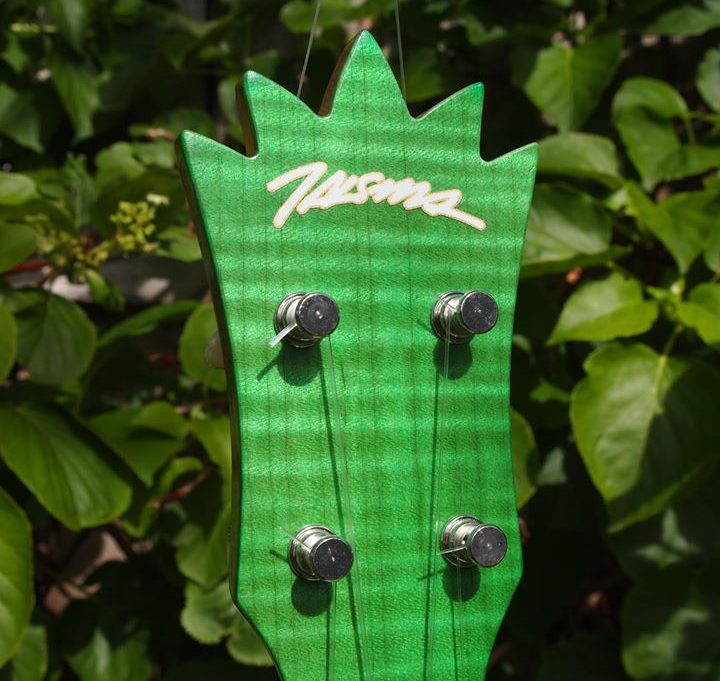Driving through the Berkshires on Highway 7, you will encounter beautiful scenery and picturesque views. And if you know what you are looking for you may spot a small building as you enter Sheffield, Massachusetts, just north of the Connecticut border. Nestled in the shrubbery is a colorful sign for The Magic Fluke Company.
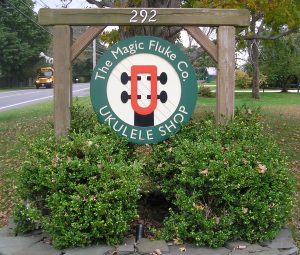 This is the home of the company where all the Flukes and Fleas are assembled, where customization is done and the final inspections are completed. I had mentioned in a Facebook ukulele group that I was taking my Fluke with me to avoid any issues regarding the Convention on International Trade in Endangered Species (CITES) as my wife and I crossed the Canadian border on our ten-day road trip through Canada and New England. Another member suggested we stop by The Magic Fluke Company.
This is the home of the company where all the Flukes and Fleas are assembled, where customization is done and the final inspections are completed. I had mentioned in a Facebook ukulele group that I was taking my Fluke with me to avoid any issues regarding the Convention on International Trade in Endangered Species (CITES) as my wife and I crossed the Canadian border on our ten-day road trip through Canada and New England. Another member suggested we stop by The Magic Fluke Company.
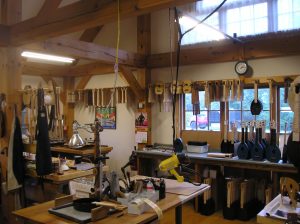 |
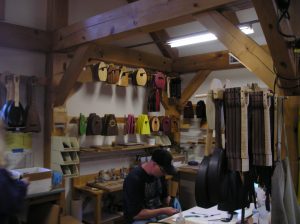 |
Dale and Phyllis Webb started in the company in 1999, with encouragement from Phyllis’s brother, “Jumpin’ Jim” Beloff. Jim saw the need for reasonably priced ukuleles available from a local source. Dale designed a thermoplastic body, creating the prototypes in his oven, and today the instruments are well appreciated and enjoyed by over 60,000 players.
Their first products, the Flea and the Fluke, have been joined over the years with a number of other instruments. There is the Firefly Banjolele and the Cricket Violin. The most recent additions are the Fluke Solid Body and the Timber, a bass ukulele.
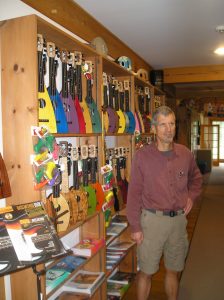 The front hallway is lined with instruments, music books and accessories. The array of color stand out brightly in the well lite building. Behind the instruments are large displays from an Ukulele Hall of Fame Museum Exhibition, on loan from the library where the exhibit was held. I ran a bow across one of the Crickets and enjoyed the sounds of the violin strings. And plugged in a Solid Body Fluke and played a couple of tunes on it while admiring the designs around me.
The front hallway is lined with instruments, music books and accessories. The array of color stand out brightly in the well lite building. Behind the instruments are large displays from an Ukulele Hall of Fame Museum Exhibition, on loan from the library where the exhibit was held. I ran a bow across one of the Crickets and enjoyed the sounds of the violin strings. And plugged in a Solid Body Fluke and played a couple of tunes on it while admiring the designs around me.
Phyllis explained that they use American made items almost exclusively. The few instrument parts that are not are US Made are from environmentally responsible sources using renewable forest materials. The views out the windows are wonderful large expanses of green across the fields and a backdrop of mountains. The shop is powered by solar panels on the roof.
There are four primary sections of the shop, the clean room, where we met Dale as he was putting finish on a neck, open and bright with windows on three sides.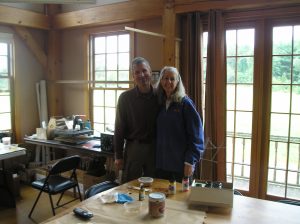
The dirty room where the fret boards are put together and the sawdust producing machines are located; the customization area, where the laser printer cuts the soundboards and etches the designs and engraves requested words, and the final assembly and shipping room. Two workers were finishing the final assembly and stringing up instruments prior to shipping them out.
As we left, Phyllis snapped a picture of Cathy and I in front of the giant ukulele. On loan from the Ukulele Hall of Fame Museum located in Rhode Island, the body is 7 feet high with another 7 feet for the neck and head. The design is based on one of the original Nunes ukuleles. Dale hopes to find the right strings for it to make it playable!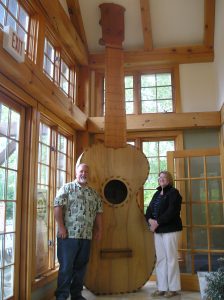 If you haven’t played a Fluke or a Flea, by all means, give them a whirl! My lava black Fluke is a regular traveler. I love it for picnics and outdoors. The sound is amazing and the unique shapes attract comments.
If you haven’t played a Fluke or a Flea, by all means, give them a whirl! My lava black Fluke is a regular traveler. I love it for picnics and outdoors. The sound is amazing and the unique shapes attract comments.
